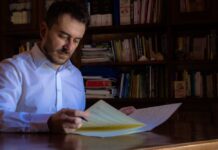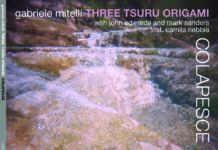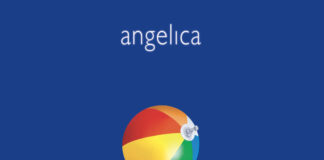On their recently completed tour of the US East Coast, violinist Biliana Voutchkova and clarinetist Michael Thieke offered a set centered on the intensely focused, subtly developed exploration of microsounds. Playing together live, the two exploited extended techniques on both of their instruments to throw out a spectrum of sound colors that diverged and converged in often surprising ways. The two instruments are roughly similar in range but quite different in timbre; through special fingerings, bowings and blowing Voutchkova and Thieke were able to blend violin and clarinet into one composite, unpitched, high-frequency voice, or separate them out entirely into distinctive yet complementary planes of sound. The music was consummately textural, woven thickly from persistent bowstrokes on muted strings and long tones sustained by circular breathing, or more ethereally from air notes or the sound of a violin string detuning. As exhilaratingly shown by the performance they gave in the Washington, DC area last night, Voutchkova and Thieke inhabit a territory defined as much by the music between the notes as by the notes themselves.
Two recent releases have Voutchkova and Thieke appearing individually in the company of other musicians; what remains constant across these quite dissimilar recordings is their ability to play music that turns on the intelligent creation of finely-grained concord and contrast.
The CD 77 Kids (Creative Sources CS337) finds Voutchkova in another small ensemble of mixed strings and winds, this time situating her violin with Ernesto Rodrigues’s viola and the flute, bass flute, soprano saxophone and bass clarinet of Micha Rabuske. The recording, made in spring 2010 in Berlin and released last year, features a music less poised on the edge of noise as was the live set with Thieke, but captures an elemental, deeply colored sound nevertheless. The playing on the seven tracks is spun around a pitch-based core, which makes itself audible through a semi-transparent surface of sheer sound. As much linear as planar, the music’s angular phrasing and fragmentary textures allude, obliquely, to the broken counterpoint of postwar European art music. It is a fine program of improvised music in which the three musicians demonstrate the nuanced interplay fostered by a close attentiveness.
The September, 2016 release because life should be so wonderful (I) by Porta Chiusa (Herbal Concrete Disc 1603), features the unusual ensemble of three clarinets—Thieke, Hans Koch, and Paed Conca—and female vocals. The single long track, a piece Conca composed under the inspiration of the multilingual text “nano splitter gefaser” by Swiss performance poet Heike Fiedler, is an elaborate essay on the musical effects of microtonal discrepancy. The work’s center of gravity lies in the choric effects of the three clarinets falling into and out of perfect unison—the music here being quite literally found in the space between the notes of the tempered scale. A gradual spreading out of the intervals leads to tension-filled, unstable chords augmented by tones contributed by Maki Hachiya’s voice. Although predominantly taking place at a low dynamic, the music can make sudden leaps in volume, paradoxically emphasizing by negation its carefully-wrought aesthetic of minutely-balanced sound.









